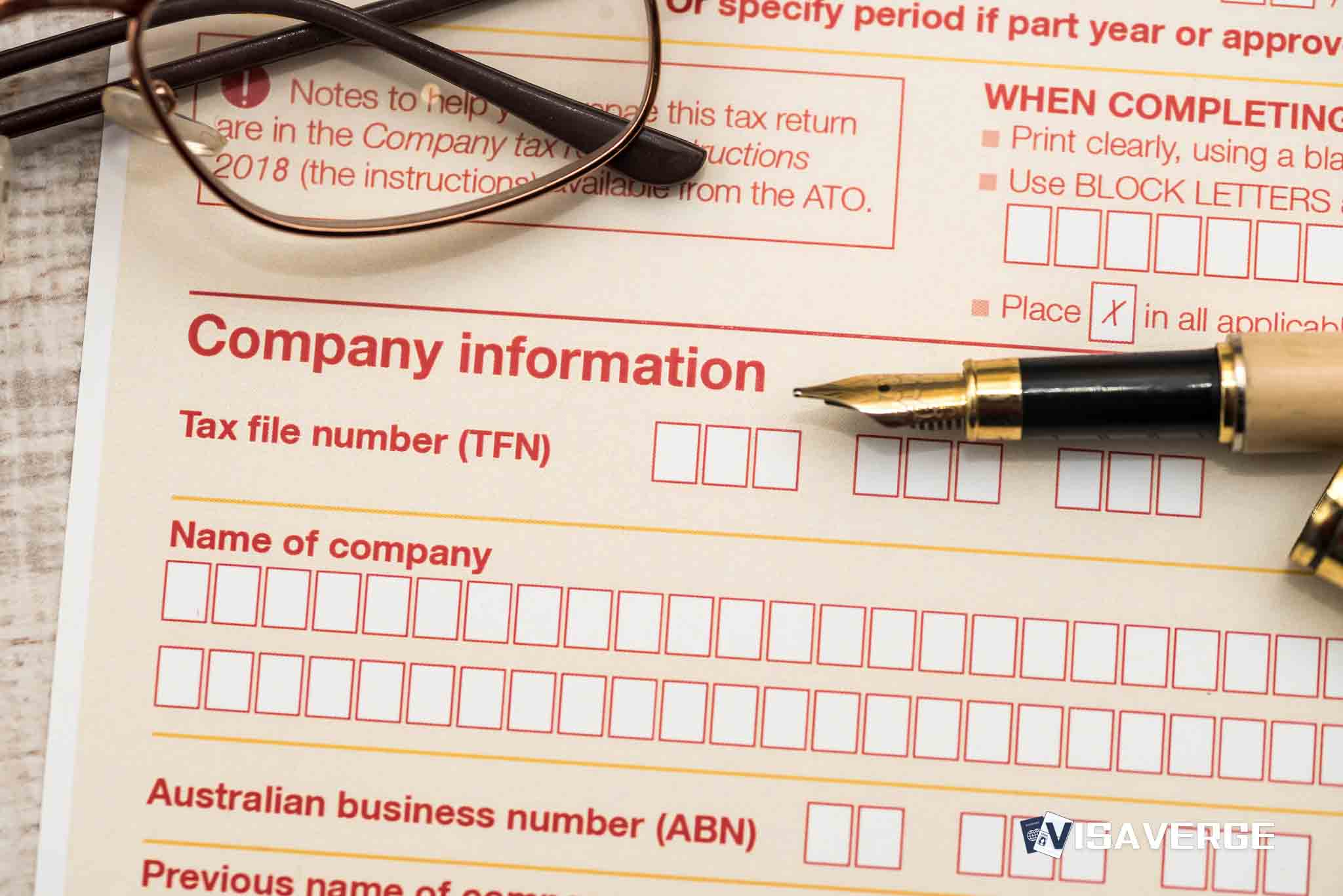Navigating a Lost Passport and Approaching UK Visa Expiration
When you find yourself in a situation where your passport is lost, and your UK visa expiration date is looming, it’s understandable to feel anxious. The process to remedy this situation may seem overwhelming, but it’s essential to act swiftly and follow the steps outlined by the UK immigration authorities to resolve the issue.
Steps to Take When Your Passport is Lost with an Expiring UK Visa
Report the Loss of Your Passport
Before tackling the expiring visa issue, it’s imperative to report your lost passport. Contact your country’s embassy or consulate in the UK to report the loss and to request a replacement passport. They will guide you through the process, which typically includes filing a police report and submitting a passport replacement application.
Informing the UK Visas and Immigration (UKVI)
Immediately after you’ve reported your lost passport, you need to inform the UK Visas and Immigration (UKVI) about your situation. You can contact them via their official website or their customer service helplines. They will give you detailed instructions on how to proceed with your situation.

Handling a UK Visa Renewal Without a Passport
In the event of a lost passport with an expiring visa, it’s crucial to pursue a UK visa renewal. However, typically, a valid passport is a prerequisite for a visa application. Since you are awaiting a replacement passport, it’s essential to seek guidance from UKVI regarding your next steps.
Applying for a ‘Transfer of Conditions’ (TOC)
If your visa is about to expire or has already expired, and you have applied for a new passport but haven’t received it yet, you might be eligible to apply for a ‘Transfer of Conditions’ (TOC). A TOC allows you to get a vignette (a sticker) placed in your new passport once it arrives, effectively transferring your visa from the lost passport to the new one. Detailed instructions on the TOC process can be found on the UK government’s official website.
Additional Tips for Dealing With an Expiring UK Visa
Here are some additional tips to consider:
- Act Quickly: Timing is critical. Do not delay taking the necessary steps, as procrastination can lead to more complex immigration issues.
- Keep Records: Keep a detailed record of all your correspondence with the authorities, including dates and reference numbers.
- Seek Legal Advice: If you’re unsure about the process or your specific situation, consider seeking legal advice from an immigration specialist.
- Prepare Your Documents: Gather all other relevant documents that prove your legal stay and identity to assist with the visa renewal process.
In conclusion, dealing with a lost passport with an expiring UK visa can be stressful, but by acting promptly and methodically, you can navigate through the situation. Always refer to official immigration channels for the most up-to-date advice and do not hesitate to reach out to immigration specialists for assistance. Remember, the most important step is to initiate the process as soon as possible to avoid any potential complications with your immigration status in the UK.
Expert Insights
Did You Know?
- Immigrants contribute significantly to the economy: Studies have shown that immigrants contribute positively to the economy of their host countries. In the case of the UK, immigrants have been found to contribute more in taxes and social contributions than they receive in public benefits.
- Naturalization rates vary widely: The rate at which immigrants become naturalized citizens varies across countries. For example, in countries like the United States and Canada, around 90% of eligible immigrants become citizens. In contrast, in European countries like Germany and Denmark, the naturalization rate is lower, ranging from 30% to 50%.
-
Immigration is not a recent phenomenon: While immigration is often seen as a contemporary issue, it has been happening throughout history. For example, in the late 19th and early 20th centuries, millions of Europeans migrated to the United States, seeking better economic opportunities and fleeing political unrest.
-
Immigration laws have changed over time: Immigration laws are not static and have evolved over time. In the UK, for instance, there have been significant changes to immigration policies, from the introduction of work permits in the 1960s to the implementation of the points-based system in 2008.
-
Family reunification is a common immigration pathway: A significant number of immigrants are admitted through family reunification programs, which allow close family members to join their loved ones in another country. This pathway recognizes the importance of maintaining family ties and supporting social integration.
-
Refugee resettlement is a complex process: When it comes to refugees, resettlement is just one of the solutions. The majority of refugees, around 85%, reside in developing countries rather than being relocated to wealthier nations. Resettlement programs involve extensive vetting and coordination between multiple agencies to ensure the safety and successful integration of refugees.
-
Language proficiency is crucial for successful integration: Language proficiency plays a vital role in the successful integration of immigrants. Studies have shown that immigrants who acquire the language of their host country have better employment prospects, higher incomes, and improved social integration.
-
Immigrants are diverse in their skills and qualifications: Immigrants bring a wide range of skills and qualifications to their host countries. While some immigrants might work in low-skilled jobs initially, many go on to contribute to sectors such as healthcare, engineering, technology, and academia, enriching the host country’s human capital.
-
Immigration can lead to cultural enrichment: Immigration brings cultural diversity, which can lead to the enrichment of host societies. Immigrants often introduce new foods, traditions, and customs, contributing to a more vibrant and multicultural society.
-
Immigrants are more likely to start businesses: Immigrants are often more entrepreneurial than the native-born population. Studies have shown that immigrants are more likely to start their own businesses, creating jobs and generating economic growth in their host countries.
These fascinating facts demonstrate that immigration is a complex and multifaceted phenomenon with both economic and cultural implications. Exploring the history, policies, and contributions of immigrants can help foster a greater understanding and appreciation for the diverse experiences and contributions of immigrant communities.
Learn today
Glossary of Immigration Terms
- Passport: A government-issued document that certifies a person’s identity and citizenship and permits them to travel internationally.
- UK Visa: A document issued by the UK government that grants permission to an individual to enter, stay, or work in the United Kingdom for a specific period.
-
Expiration Date: The date after which a visa or other legal document is no longer valid and the individual is no longer permitted to remain in the country.
-
Embassy: Typically located in a foreign country’s capital city, an embassy represents the sending country’s interests and provides services, assistance, and protection to its citizens abroad.
-
Consulate: A smaller diplomatic office, typically located in cities separate from the capital, that provides consular services, such as issuing visas, passports, and assisting citizens with various matters.
-
UK Visas and Immigration (UKVI): An agency under the UK Home Office responsible for managing immigration and visas in the United Kingdom.
-
Lost Passport: When an individual’s passport has been misplaced, stolen, or damaged and is no longer in their possession.
-
Replacement Passport: A new passport issued by the individual’s home country to replace a lost or stolen passport.
-
Police Report: A statement or report filed with the local police to document the loss or theft of a passport.
-
Transfer of Conditions (TOC): A process that allows an individual with an expiring or expired visa and a pending passport replacement to transfer their visa to a new passport once it is obtained.
-
Vignette: A sticker placed in a passport, serving as proof of a valid visa and granting permission to enter and stay in a country for a specified period.
-
Legal Stay: The period during which an individual is permitted to remain in a country based on their valid visa or immigration status.
-
Immigration Specialist: A professional, such as an attorney or consultant, who specializes in immigration law and provides advice and assistance to individuals navigating immigration processes.
-
Immigration Status: The legal category or condition that determines an individual’s rights and privileges in a country, such as the right to work or receive public benefits.
-
Correspondence: Communication, such as emails, letters, or phone calls, exchanged between an individual and government authorities regarding their immigration matters.
-
Procrastination: Delaying or putting off taking action or making decisions, which can lead to further complications or missed deadlines in immigration cases.
-
Documentation: Official papers, records, or evidence required to support an individual’s immigration application, such as identification documents, proof of residence, or employment letters.
-
Legal Advice: Guidance and counsel provided by an attorney or a legal professional with expertise in immigration law to assist individuals in understanding their rights, responsibilities, and options in immigration matters.
-
Immigration Channels: The official government departments, websites, and helplines that provide information and services relating to immigration and visa matters.
-
Immigration Status Complications: Issues or problems that may arise if an individual does not take timely action or fails to comply with immigration regulations, potentially resulting in unauthorized stay, visa revocation, or other legal consequences.
It’s important to note that the definitions provided here are general and should not be considered legal advice.
And there you have it, my tech-savvy friend! Navigating a lost passport and facing an expiring UK visa may sound daunting, but fear not! Just follow the steps we’ve discussed, stay calm, and take swift action. Remember, for more detailed information and expert guidance, head on over to visaverge.com. Happy travels and stay techy!
FAQ’s to know:
FAQ 1: What should I do if my passport is lost and my UK visa is expiring?
If your passport is lost and your UK visa is expiring, there are a few steps you should take. First, report the loss of your passport to your country’s embassy or consulate in the UK and request a replacement passport. Then, inform the UK Visas and Immigration (UKVI) about your situation. They will provide you with instructions on how to proceed. It’s important to act swiftly and follow the procedures outlined by the authorities to resolve the issue.
FAQ 2: Can I renew my UK visa without a passport?
Typically, a valid passport is required to apply for a UK visa. However, if your passport is lost and you have applied for a replacement but haven’t received it yet, you may be eligible to apply for a ‘Transfer of Conditions’ (TOC). A TOC allows you to transfer your visa from the lost passport to the new one once it arrives. You can find detailed instructions on the TOC process on the UK government’s official website.
FAQ 3: What should I consider when dealing with an expiring UK visa?
When dealing with an expiring UK visa, consider the following tips:
- Act quickly: Time is crucial. Don’t delay in taking the necessary steps, as procrastination can lead to more complex immigration issues.
- Keep records: Maintain a detailed record of all your correspondence with the authorities, including dates and reference numbers.
- Seek legal advice: If you’re unsure about the process or your specific situation, consider consulting an immigration specialist for guidance.
- Prepare your documents: Gather all relevant documents that prove your legal stay and identity to assist with the visa renewal process. By following these tips and staying informed through official immigration channels, you can navigate the situation more effectively and avoid potential complications with your immigration status in the UK.
What did you learn? Answer below to know:
- True or False: When faced with a lost passport and an expiring UK visa, it is important to report the loss of the passport first before notifying the UK Visas and Immigration (UKVI) about the situation.
- What is the purpose of applying for a ‘Transfer of Conditions’ (TOC) in the context of a lost passport and an expiring UK visa?
a) To request a replacement passport from the UKVI
b) To report the lost passport to the UKVI
c) To transfer the visa from the lost passport to a new passport
d) To extend the expiration date of the expiring UK visa - What are some recommended measures to take when dealing with an expiring UK visa?
a) Keep a record of all correspondence, procrastinate taking necessary steps, and seek legal advice
b) Act quickly, gather relevant documents, and seek legal advice
c) Delay taking necessary steps, ignore correspondence, and rely solely on official immigration channels
d) Contact local authorities, request a visa extension, and report lost passport directly to the embassy







